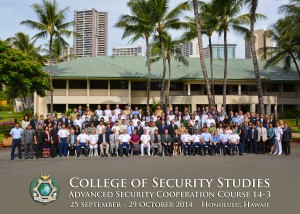 (HONOLULU) – Security practitioners from 34 nations and territories graduated from the Advanced Security Cooperation Course 14-3 today at the Asia-Pacific Center for Security Studies. One hundred nine military and civilian Fellows attended the nearly five-week course Sep. 25 – Oct. 29.
(HONOLULU) – Security practitioners from 34 nations and territories graduated from the Advanced Security Cooperation Course 14-3 today at the Asia-Pacific Center for Security Studies. One hundred nine military and civilian Fellows attended the nearly five-week course Sep. 25 – Oct. 29.
ASC is an executive education program in which course Fellows’ develop a shared understanding of critical socio-economic, military, political, and cultural issues impacting the region’s evolving security environment.
“Most importantly,” said course manager Kerry Lynn Nankivell, “the ASC (course) moves participants to develop collaborative strategies to address regional challenges. These challenges can include everything from improving governance to preparing for and responding to natural disasters.”
ASC attendees include military and law enforcement officers, foreign service officials, government representatives, and non-governmental and media professionals. They learned important analytical, decision-making, and leadership skills that will help them solve problems that are often transnational in nature.
Their ASC learning process included 18 plenary lectures conducted by APCSS faculty members and adjunct instructors. Key lecture topics included “Complexity and Cooperation” by Dr. Bill Wieninger and “Strategy Development for Complex Adaptive Systems” by Herman Finley.
These particular lectures laid the groundwork for a class exercise focused on a regional biological threat. They prepared Fellows to cooperate in assessing the threat and to develop an adaptive response strategy.
“This exercise came early in the course because it requires Fellows to quickly learn to communicate cross-culturally while applying advance problem-solving methods,” explained Nankivell. She added, “It sparked critical thinking while building the cooperative skills so vital to success in the course and long after.”
Learning to communicate and cooperate despite nationalistic, linguistic and cultural differences is critical in a course with such a diverse student body. Fellows came from Australia, Bangladesh, Bhutan, Cambodia, Canada, Chile, China, Colombia, Fiji, Hong Kong, and India. They also came from Indonesia, Japan, Kiribati, Laos, Malaysia, the Maldives, Micronesia, Mongolia, Myanmar, Nepal, and Pakistan. Additionally, Palau, Papua New Guinea, the Philippines, Marshall Islands, Singapore, South Korea, Sri Lanka, Thailand, Timor-Leste, Tonga, United States, and Vietnam also sent Fellows.
Brig. Gen. Jagadish Pokharel related, “Participants came from various walks of life; this was very fruitful for us. It broadened our view (and) gave us an opportunity to understand the partners with whom we work.” Pokharel is with the Nepal Army’s Directorate of Public Relations.
The ASC education experience culminated in formal Fellows Projects in which each attendee identified an opportunity to improve security cooperation in the region. They developed practical solutions for their organizations and briefed their projects to course mentors. The assignment objective is for each Fellow to strive to implement their recommendations upon returning to their workplaces.
Among ASC 14-3 projects is Philippines Air Force Brig. Gen. Charito Plaza’s effort to institutionalize cooperation between government, private industry and military reserve units in humanitarian assistance and disaster response situations. Ahmed Mujthaba, a member of Maldives Ministry of Foreign Affairs, seeks to build awareness on human trafficking and youth unemployment in his nation. Pokharel will evaluate the role of media in nation building.
Plaza expressed gratitude for the opportunity to take part in the Center’s world-changing curriculum.
“The APCSS and United States gave us a legacy of promoting freedom through education and empowerment. It would like to thank the U.S. government and APCSS for this experience and the amazing knowledge I learned in this course.”
ASC is one of six formal courses at APCSS. The center is a Department of Defense institute that addresses regional and global security issues. Military and civilian representatives, most from the United States and Asia-Pacific nations, participate in a comprehensive program of executive education, professional exchanges and outreach events, both in Hawaii and throughout the Asia-Pacific region.
The Center supports the U.S. Pacific Command by developing and sustaining relationships among security practitioners and national security establishments throughout the region. APCSS’ mission is to build capacities and communities of interest by educating, connecting and empowering security practitioners to advance Asia-Pacific security. It is one of the Department of Defense’s five regional security studies centers.
Since opening in 1995, more than 9,000 alumni representing over 122 countries and territories have attended APCSS courses and workshops.
-END-


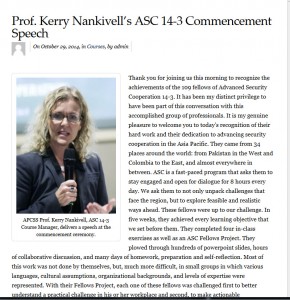
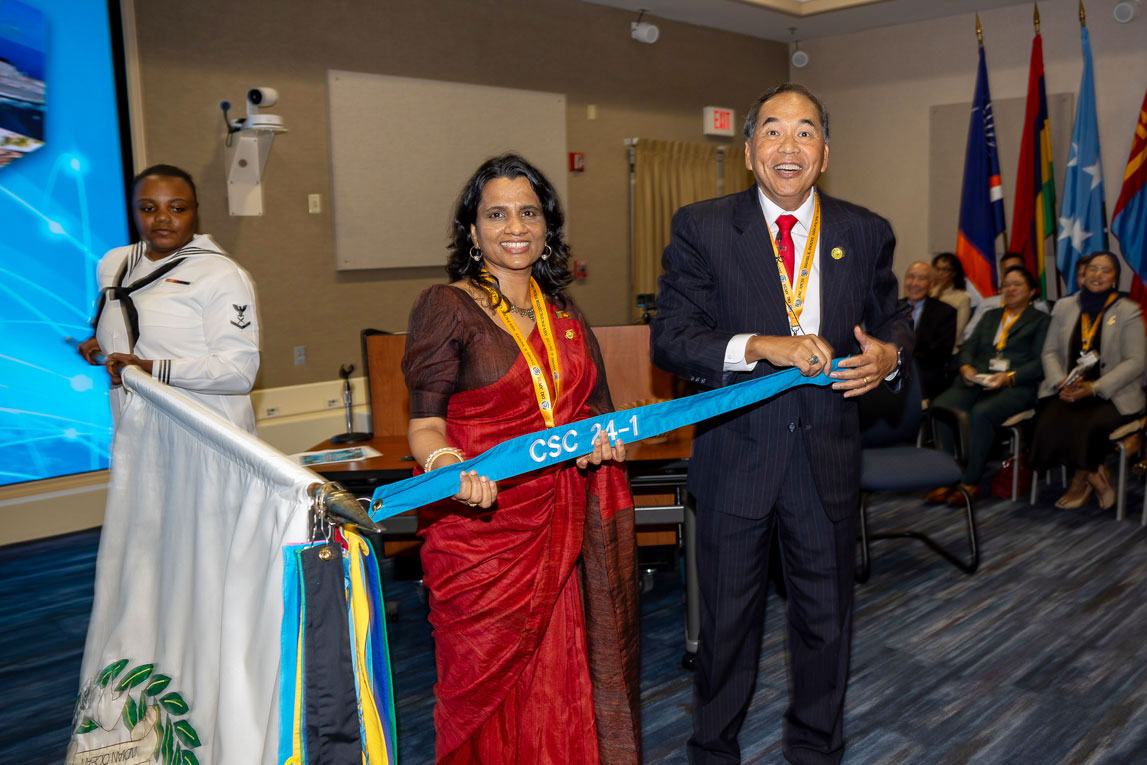
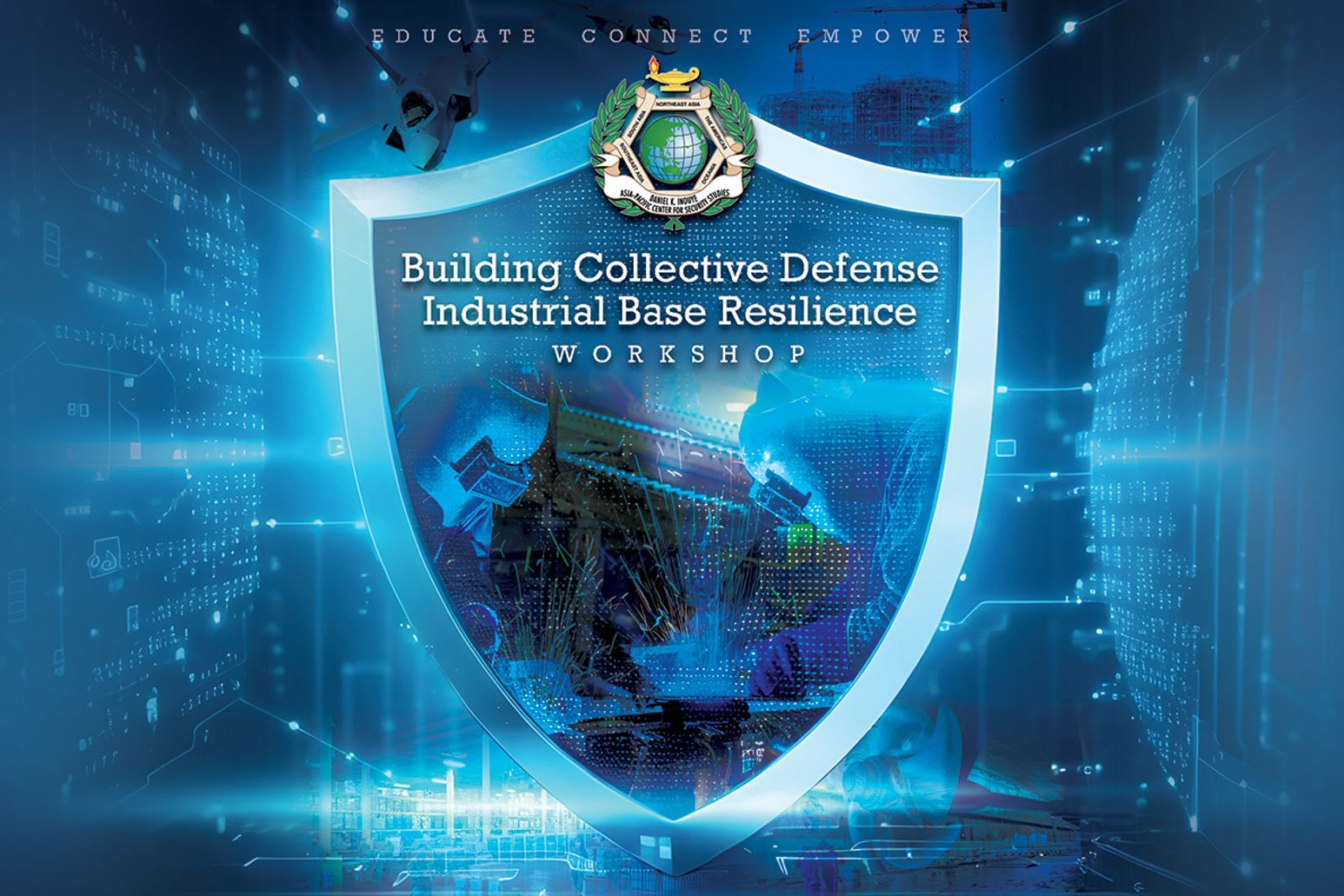
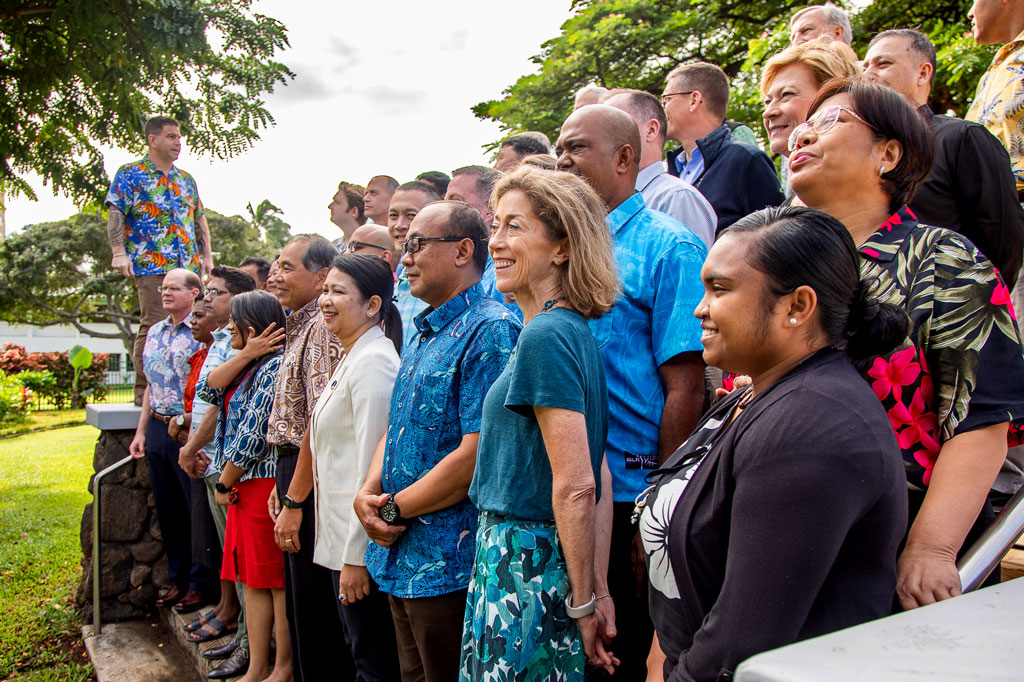




Leave A Comment